- Home
- Leslie Meier
English Tea Murder Page 9
English Tea Murder Read online
Page 9
When they joined the stream of people pushing into Harrods—Lucy was quickly learning that people from many other countries do not necessarily have the same sense of personal space that Americans do—they passed glass cases displaying all sorts of luxury items: sunglasses costing hundreds of pounds, handbags costing thousands, watches costing tens of thousands. It was a bit overwhelming until you realized that nobody was buying. This was a temple to consumerism, and the high-priced goods were designed to awe the tourists who streamed past, nudging each other and whispering the astronomical prices.
You would have thought they were in church, thought Lucy with disapproval. “Let’s start with the famous food hall.”
“I’ve heard it’s amazing,” agreed Rachel.
“I did not come to Harrods to go to the supermarket,” protested Sue. “I want to see the designer clothes.”
“And I want to use the luxury loo,” said Pam. “We need a plan.”
“I have one,” said Sue, consulting her guidebook. “They have a tearoom. Let’s meet there at four-thirty.”
The four then split up, Pam and Sue taking an elevator up and Lucy and Rachel taking one down to the cavernous food hall.
Seeing the white tile walls with their mosaics picturing foodstuffs and the refrigerated cases containing every sort of meat, Lucy felt she was in familiar surroundings. She shopped for groceries every week, and Harrods food hall wasn’t that much different from the IGA in Tinker’s Cove. Except, of course, that it was bigger and had a greater variety of products, and the prices were much higher.
“Imagine,” said Rachel. “Thirty-two pounds for a hunk of meat.”
Lucy was not about to be discouraged. She oohed in delight when she found quail eggs for sale, she admired the glistening fresh fish, and she exclaimed over the fresh-baked bread and rolls. Unable to resist the temptation to buy, she purchased four apples and four oranges in the produce section and was delighted when the clerk wrapped them in one of the highly desirable green plastic carry bags with the Harrods name in gold.
Rachel wanted to get some books for Miss Tilley, so they found an escalator and ascended, rising past a statue of a young man and woman with their arms stretched toward a soaring seagull. Lucy studied it, realizing with shock that the figures were representations of Princess Diana and her boyfriend, Dodi Fayed. Reaching the landing, she saw there was a book in which visitors could inscribe their names, just like the guestbooks provided at the funeral home back in Tinker’s Cove. But this wasn’t a funeral home; it was a department store and hardly seemed a suitable place for a memorial.
Stunned, she turned to Rachel. “Isn’t this the tackiest thing you’ve ever seen?”
Rachel gave a little half smile. “The man who owns Harrods is Dodi’s father. It’s his way of making sure his son isn’t forgotten.”
Lucy stepped off the escalator and through the archway leading to the book department, among others. “It seems an odd way to do it.”
“People grieve differently, but I don’t think anybody ever gets over the loss of a child, even if that child is grown.”
Lucy reached for the spot on her arm where Ann Smith had gripped it, noticing it was a little tender. She thought of her four children and of Toby’s wife, Molly, and their son Patrick, hoping they were all healthy and happy, and she knew that if she were to lose one of them, she would grieve until the day she died.
Chapter Nine
While Rachel was looking for English mysteries to bring back to Miss Tilley, Lucy wandered into the toy department where she looked for a birthday present for Patrick. When she found a little stuffed Paddington Bear to go along with the first book in the series, she bought it, getting another Harrods bag in the bargain. Then they wandered through the housewares, deploring the fact that crockery, no matter how adorable, was an impractical souvenir, being both heavy and liable to break. At four-thirty, they went to the tearoom as planned, only to discover Sue and Pam standing in front of a door with a CLOSED sign.
“It’s undergoing renovations,” said Sue. “This store has more than thirty restaurants and they have to close the tearoom.”
Pam was indignant. “How many days have we been here? Three? Four? And we haven’t had afternoon tea yet. What’s happened to England?”
“We can go to the pub or the Asian grill or the pizza palace,” suggested Rachel. “What about the coffee bar?”
Sue was pouting. “I want tea. I’m in England and I want tea.”
“I have an idea,” said Lucy. “Meet me at the Tube station in half an hour.”
“Let’s meet at six,” said Sue, who had found some interesting information in her guidebook. “There are lots more stores around here. Harvey Nichols. Habitat. Burberry. If we can’t have tea, we might as well shop.”
“We can’t afford those places,” protested Pam.
“But you can always dream,” said Sue, marching off with Pam and Rachel following in her wake.
Lucy found a very tired trio drooping on a bench when she arrived at the Tube station a few minutes after six, laden with more Harrods bags.
Sue looked at the bulging green bags suspiciously. “This isn’t like you, Lucy. What have you been buying?”
“Food,” said Lucy. “Good, wholesome food. Cheese and fruit and salads and bread and even some nice tea—I figured we could get hot water from that weird machine in the lounge. Oh, and I got a couple bottles of wine, too. We’ll eat in tonight.”
“Good idea.” Pam was rising to her feet as the train slid into the station. “I’m too tired to go out.”
Rachel secured her purse under her arm as she boarded the train. “And I’m sick of paying too much money for really bad food.”
“Did you say tea?” asked Sue, perking up.
“Yes, dear. I found your favorite Lapsang souchong.”
“You really are a pal,” observed Sue, sinking into the seat a handsome man in a tan trench coat promptly vacated for her.
Back at the hotel, they all crowded into Lucy and Sue’s room where Lucy spread out the food on her bed, picnic style. Sue poured the wine into bathroom tumblers. Lucy tugged her swollen feet out of her shoes and tucked a pillow behind her aching back, reclining against the headboard.
Rachel and Pam brought in pillows and a chair from their room, and soon they were all comfortably settled.
“So what did you think of Harrods?” Lucy asked Sue. “Was it everything you dreamed of?”
Sue was spreading some pâté on a bit of bread. “And more. Especially when it came to prices. I didn’t buy anything. I just couldn’t do it.”
“Even I broke down and bought this,” declared Pam, holding up a gaudy flower-printed tote bag with the Harrods logo prominently embroidered beneath the handles in gold thread.
Lucy gulped. “For you?”
“That’s not your style at all,” observed Sue.
“No. Not for me. It’s a gift for Phyllis.”
Phyllis, the receptionist at the Pennysaver, was known for her flamboyant taste. “She’ll love it,” said Lucy.
“I got a good deal on books,” said Rachel, digging into a container of bean salad with a plastic fork. “If you bought two, you got a third free—and I know Miss T hasn’t read them.”
Lucy’s keen detective mind recalled seeing Sue with a small bag. “You did buy something, though,” she said, looking at her friend accusingly. “What is it?”
“I’m guilty as charged,” admitted Sue. “I found a lovely camisole in Harvey Nichols.” She held up the wisp of lace for the girls to admire. “It was expensive but I think it was a good value.”
The other three exchanged doubtful glances. High fashion in Tinker’s Cove usually meant something warm and woolly.
“Really! It was less expensive than it might have been, because I found it in the lingerie department. And I can wear it lots of ways: underwear, nightwear, even under a suit to dress it up for evening.”
Lucy was dipping into the salad, trying to imagine a situatio
n in which she might wear something like the camisole and failing. “I bought a Paddington Bear for Patrick,” she said. Thinking of her chubby little grandson reminded her of Ann Smith’s terrible loss, and she felt a bit guilty for the way she had fled from the distraught woman.
“What do you think of the tour so far?” asked Pam, holding out her glass for a refill. “The people, I mean.”
Sue was pouring the wine. “Quentin’s got a thing for Lucy, that’s for sure.”
Lucy held out her glass, too. “He’s got a thing for anything female. Didn’t you notice him flirting with Autumn?”
“That girl is trouble,” said Pam.
“She definitely has some serious issues,” observed Rachel. “And so does Jennifer. I think she’s anorexic.”
“Her grandfather keeps a close eye on her,” said Lucy.
“And Laura Barfield sure keeps tabs on her son,” said Pam. “Poor Will—he’s desperate to escape.”
“I wonder what happened to his father,” mused Lucy. “I wouldn’t want to raise a son without a husband.”
“Maybe he just didn’t come on the trip,” speculated Sue. “The Smiths are certainly a tight little family unit. I can’t imagine Sidra ever clinging to Sid and me the way Caroline sticks to her parents.”
Lucy put down her glass. “I ran into Ann in this gruesome exhibit of surgical tools. She’d gotten separated from Tom and Caroline and was frantic over it. She told me she had a little boy who died in an auto accident when he was a baby. She was pretty upset.”
“Why was she telling you that?” asked Sue.
“I don’t know, really. My sympathetic face?” Lucy tried to make light of it but couldn’t quite carry it off. “It was pretty strange. I mean, it must have happened at least eighteen years ago. She said Caroline was a baby when it happened.”
“You’d think she’d be over it by now,” said Sue.
Rachel ran her finger around the rim of her glass. “The loss of a child stays with you forever. It changes your personality, your outlook on life, your relationships. It’s like an emotional earthquake. Nothing is the same afterward.”
Lucy thought of the statue of Diana and Dodi, soaring heavenward along with a seagull and decided it was an attempt, perhaps a futile attempt, to recast their terrible fate into something more acceptable. She supposed a lot of people would rather think of them as happy spirits than recall the sordid details of that crash in a filthy Paris tunnel.
Falling silent, they heard a soft knock on the door. When Sue opened it, she found Emma Temple standing there, holding a white blouse.
“Oh, I’m sorry to barge in like this,” she said, retreating.
“No, no. Come in,” invited Lucy. “What can we do for you?”
“I’m looking for a needle and thread. A button is coming loose on this blouse and I want to wear it tomorrow.”
Pam, always as prepared as a good scout, popped up. “I’ve got a sewing kit in my room. I’ll be right back.”
“Oh, don’t go to any trouble . . .”
“It’s no trouble—it’s right next door. Have some wine while I get it.”
“Yes, do,” said Lucy, noticing that Emma’s eyes were lingering over the picnic spread out on the bed. “And some food. We’ve got plenty.”
Emma swallowed. “Are you sure?”
“Absolutely,” said Rachel. “We can’t eat it all, and we have no way of keeping it.”
“I’m starving,” admitted Emma. “I simply couldn’t face Ye Olde English Roast Beef again.”
“Dive in—I hope you don’t mind fingers. We’re a bit short on cutlery.” Lucy eased herself off the bed carefully so as not to spill anything and went into the bathroom for another glass. Emerging, she held it aloft. “Some chardonnay?”
“Actually, I’d prefer water.” Emma was spreading some pâté on a hunk of baguette.
Sue was on her feet, too. “I was just going downstairs to get some hot water for tea. Would you like some?”
“Tea would be heaven,” Emma said. “I’ve had a really tiring day.”
She did look exhausted, thought Lucy. Emma had pulled her hair back into a sloppy ponytail, and her makeup had worn off to reveal pale, colorless lips and dark circles under her eyes. Beneath that glossy professional surface, she was really only a very young, vulnerable girl. “Were you able to make all the, um, arrangements?” she asked.
“Yes.” Emma flashed a quick smile of thanks to Pam when she returned with a little plastic case containing threaded needles. “These are great. I don’t know if I could see to thread a needle, my eyes are that tired,” she said, choosing the white one. “I can’t wait to take out my contacts.”
“Let me do that,” said Lucy, taking the blouse. “I’ll sew while you eat.”
In a matter of minutes, she had stitched the loose button back in place and bitten off the thread.
“That was fast,” said Emma as Sue returned with five paper cups of tea precariously balanced on a guidebook she was using as a makeshift tray.
“I made some for everybody, to save another trip downstairs,” she explained between gasps for breath. “Or another climb upstairs.”
“Do we have dessert?” asked Rachel, glancing at a small white box tied with string.
“Cookies!” exclaimed Lucy, lifting the lid. “Scottish shortbread.”
“Perfect!” declared Rachel, choosing a petticoat tail and taking a bite. “I can’t believe Ye Olde English Roast Beef is the only restaurant in London. There must be better places.”
“This is my first trip to London,” said Emma, sipping her tea. “I have to say it’s been a bit of a disappointment. I’m glad I’m going home tomorrow.”
“London’s great,” declared Sue. “I think your perception may be colored by your sad mission. You haven’t had time to shop or see the sights or go to the theater.”
Rachel nodded in agreement. “It’s always hard to lose a parent.”
Emma shook her head. “Honestly, he was like a stranger to me.”
Rachel was having none of that; she knew all about the tricks the mind could play. “Sometimes being estranged makes it even harder.”
Emma sniffed. “Unresolved issues?”
“Exactly.” Rachel was reaching for another cookie.
“Frankly, I think I’m suffering more from jet lag than grief.” She sighed. “Plus the frustration of dealing with very polite but very obstinate bureaucrats.”
They all laughed and Lucy took advantage of the moment to pose a question that had been bothering her. “Is the coroner still satisfied that anaphylactic shock was the cause of death?”
Emma’s big blue eyes widened in surprise. “Why, yes. Isn’t that what happened? Some of you were right there, weren’t you?”
“Right there,” said Sue. “Just across the aisle.”
Emma’s face softened. “That must have been terrible for you.”
Sue was philosophical. “They gave us free drinks.”
Lucy was shocked at Sue’s rudeness, fearing Emma would be insulted. But instead, she tilted her head back and laughed. “That’s exactly what my mother said when she heard. She said that if the airline gave everyone free drinks because he died, it would be the nicest thing he ever did.”
No one quite knew how to react—except Sue. “That must have been one really nasty divorce.”
Emma nodded. “I think so. It all happened when I was quite small. I don’t remember anything about it. It’s always been just Mom and me, but that’s the way it was for a lot of kids in my school. Some had stepparents they hated, so I figured I was pretty lucky to have Mom all to myself. We always got along fine; we’re a lot alike. And Mom made a good living as a court reporter. That’s how I got interested in the law—sometimes she’d bring me along if it was an interesting case.”
Sue drained her teacup. “So there was no picture of Dad on the mantel?”
“No Dad at all.” Emma grinned. “Really, I could have been the product of an immaculate conce
ption. No Dad, no men. Mom wasn’t interested in dating. One time I asked her about it, and she said once was enough and that was all I could get out of her.”
Rachel tapped her lip with a finger. “Did she discourage you from dating?”
“Not in so many words, but she did keep me pretty busy. School was a top priority, and there were lots of dance and music lessons, soccer, Girl Scouts. She always said it was important for me to be able to support myself and not to expect some Prince Charming to rescue me.”
Lucy approved. “That’s good advice. That’s what I tell my girls.”
Rachel was thoughtful. “But weren’t you curious about your father?”
“Yeah,” agreed Pam. “Didn’t you want to know if heart disease or cancer or hemophilia ran in his family?”
Emma laughed. “I think I’m a little too young to worry about that stuff, but it’s a good point. I know he had allergies, that’s for sure, but I don’t seem to have any.” She paused. “Maybe now that he’s gone, Mom will be more willing to talk about him. I definitely would like to know more about him.”
Pam was fingering the sewing case. “For what it’s worth, I can tell you he was well liked at Winchester College. I never heard anyone say a bad word about him. He always got high marks on the student evaluations every year, even the underground one the students do. They said his classes were interesting, and he took an interest in the students. And he was popular with the faculty, too. I teach a yoga class, evening school, you know, and he was a regular. He was very good, very flexible.” Pam’s expression was thoughtful as she trolled for memories. “He had a nice attitude, serious but not too serious. I’ll miss him.”
Emma impulsively wrapped an arm around Pam’s shoulder and hugged her. “Thank you. That means a lot to me.” She got to her feet. “I really need to turn in. I’ve got to be at Heathrow at five tomorrow morning. Thanks for everything.”
“You’re welcome,” said Pam. “Have a safe trip.”
“Safe home,” said Lucy, beginning to clear away the food wrappers in hopes that the others would take the hint. She was tired and talked out; she wanted to sleep. But when she’d brushed her teeth and slid between the sheets, she found her mind was a whirl of conflicting images. George Temple had seemed like a nice enough person; that’s certainly how Pam had seen him, but not his wife. Why had she cut him out of her life so completely? What had he done?

 Christmas Card Murder
Christmas Card Murder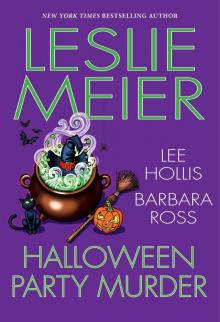 Halloween Party Murder
Halloween Party Murder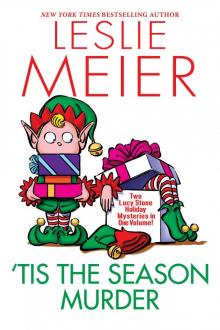 'Tis the Season Murder
'Tis the Season Murder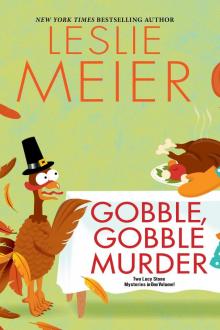 Gobble, Gobble Murder
Gobble, Gobble Murder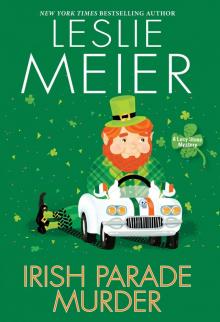 Irish Parade Murder
Irish Parade Murder Bake Sale Murder
Bake Sale Murder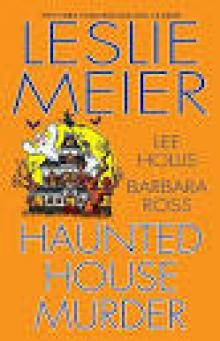 Haunted House Murder
Haunted House Murder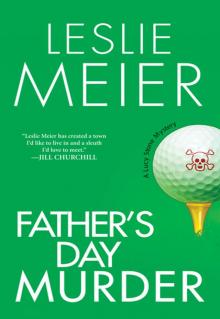 Father’s Day Murder
Father’s Day Murder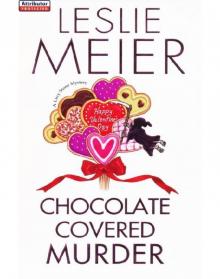 Chocolate Covered Murder
Chocolate Covered Murder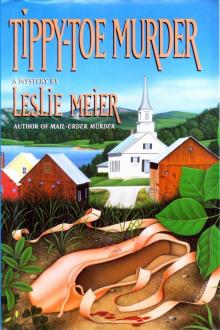 Tippy Toe Murder
Tippy Toe Murder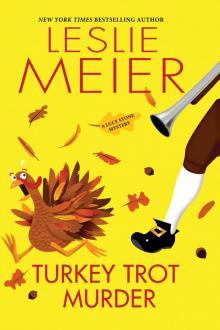 Turkey Trot Murder
Turkey Trot Murder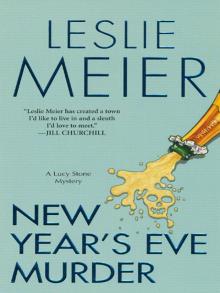 New Year's Eve Murder
New Year's Eve Murder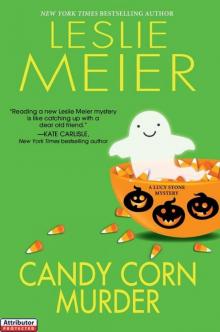 Candy Corn Murder
Candy Corn Murder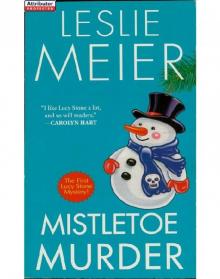 Mistletoe Murder
Mistletoe Murder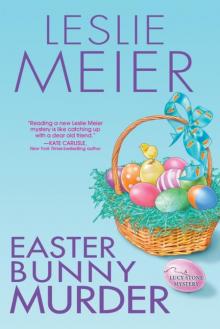 LStone 20 - Easter Bunny Murder
LStone 20 - Easter Bunny Murder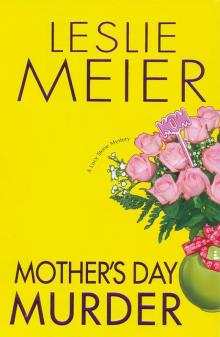 Mother's Day Murder
Mother's Day Murder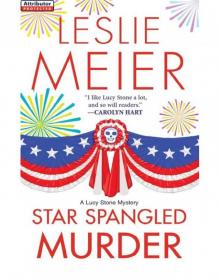 Star Spangled Murder
Star Spangled Murder Silver Anniversary Murder
Silver Anniversary Murder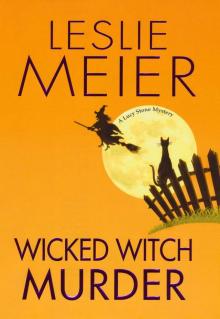 Wicked Witch Murder
Wicked Witch Murder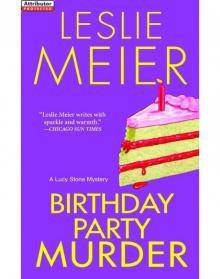 Birthday Party Murder
Birthday Party Murder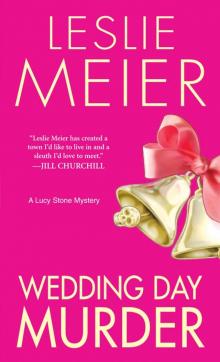 Wedding Day Murder
Wedding Day Murder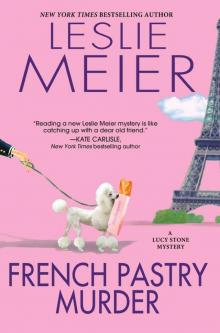 French Pastry Murder
French Pastry Murder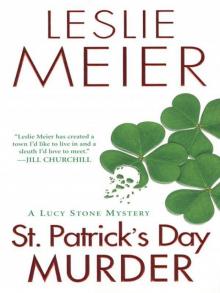 St. Patrick's Day Murder
St. Patrick's Day Murder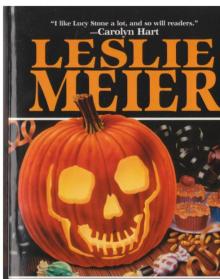 Trick or Treat Murder
Trick or Treat Murder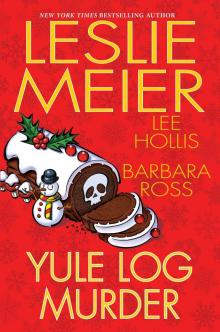 Yule Log Murder
Yule Log Murder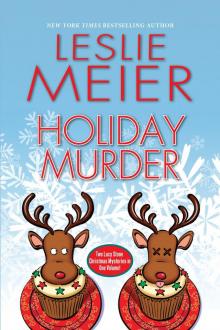 Holiday Murder
Holiday Murder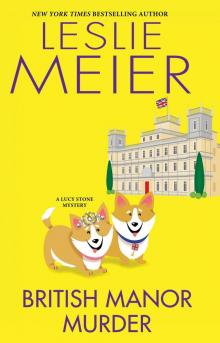 British Manor Murder
British Manor Murder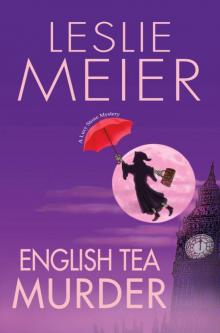 English Tea Murder
English Tea Murder